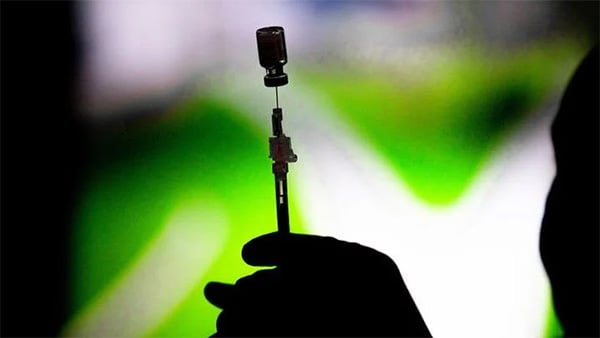The University of Kentucky intends to sue its own student-run newspaper, the Kentucky Kernel, to avoid releasing the details of a sexual harassment and sexual assault investigation against Associate Professor of Entomology James Harwood. Though the case investigator recommended Harwood’s employment be terminated and tenure revoked, the University has since allowed him to resign and not only receive pay through the end of August, but also avoid the implications of a disciplinary hearing.
In total, five victims reported incidents of sexual assault or sexual harassment committed by Harwood over the past three years. Of the five, two came forward to formally charge the defendant. A representative for the two complainants approached the Kernel about publicizing the case. The Kernel filed a public records request and, after the University refused to disclose the full investigation or any records mentioning sexual assault allegations, the student newspaper then took the case to the desk of Kentucky Attorney General Andy Beshear. On Aug. 8, Beshear ordered the release of all of the documents, to which University President Eli Capilouto responded with a campus-wide email announcing the administration’s intention to block the ordered record release with a lawsuit.

President Capilouto’s email, which has since been published as a blog post, cites the free exchange of ideas as a foundational value with which the University responds to open records requests. “But in a handful of very specific cases,” Capilouto wrote, “we are faced with the decision of whether transparency is more important than the need to protect the privacy and dignity of individual members of our community. It is not” (University of Kentucky News, “The Tension of Competing Values, 08.09.2016).
Protecting its reputation, not survivors
While Capilouto claims to have the interests of the survivors in mind, the representative reportedly told the Kernel that the complainants were not contacted by the University before Capilouto’s email was released and that they wanted the investigation into Harwood’s actions to be made public with the names redacted. Because this lawsuit goes directly against the wishes of the survivors, it is poignantly clear that the University’s claim to privacy is only intended to protect Harwood and its own reputation.
However, the University’s actions are not isolated, but rather fit into a larger pattern of institutions of higher learning failing to justly and adequately respond to incidents of sexual violence on their campuses. For many survivors, the lengthy, dehumanizing and often fruitless internal investigations are enough to discourage them from seeking the institutional support they deserve. The University of Kentucky case not only displays negligence surrounding collegiate responses to sexual violence, but also directly endangers their students. Without a formal disciplinary hearing, the sexual assault and harassment allegations will not appear when Harwood applies for subsequent positions, potentially putting his future students and community members at serious risk.
While this story has been regrettably absent from mainstream news coverage, the University of Chicago dramatically sparked a national debate over censorship in August when Dean of Students John Ellison wrote to the University’s incoming class of 2020 explaining that the institution does not support trigger warnings or safe spaces because they are fundamentally at odds with academic freedom. Ellison said the University would not “censor” free expression, no matter how offensive or unwelcome.
Many media outlets have since written about Ellison’s letter, asserting that censorship is not a legitimate reason to deprive students of necessary tools to handle challenging subjects. This debate over censorship has received a significant amount of attention, while the University of Kentucky case has been minimally covered. Ellison’s letter does not support student’s needs, but Capilouto’s email sacrifices student safety to protect a perpetrator. However, because of recent media outcry over the specious claims of “censorship” in trigger warnings, the University Chicago email has dominated the news landscape while the Kernel’s fight against actual censorship has been largely ignored.
Why, then, is the media not covering this story and others like it? Student voices are not heard nearly enough in media coverage of collegiate life, especially not in situations of sexual assault. The University of Kentucky’s simultaneous attempt to censor its students and protect a perpetrator works against all progress towards ending such heinous violence on college campuses, and must be at the forefront of the news.
Stripping right of free speech
This is far more important than trivial debates over “PC culture” and its alleged censorship.
Capilouto and the University of Kentucky’s actions strip the sexual assault victims and the Kernel staff of their right to free speech. A student-run newspaper, like the Kernel, should operate free of University control; Students have every right to report the news, even if it sheds a negative light on the school.

Had the University of Kentucky released the documents to the Kernel, the victims would have been able to tell their story and reclaim a sense of power that was lost because of the assault. Student-run publications cannot be censored because they too can work give a voice to those who have been historically silenced.
The media must cover these stories because survivors of any degree at a University should never have their voices compromised. When a student is victimized, the agency should remain with them, not the University. Yet, the University of Kentucky has silenced these two sexual assault victims instead of providing them a space of comfort, protection and empowerment.
The students assaulted already experienced a trauma at the hands of a professor, someone who is supposed to provide a positive learning environment to students. To then censor the Kernel further alienates these students by taking away yet another space safe for students and their voices.
We at The Miscellany News stand in solidarity with the Kernel. No newspaper should face these restrictions, especially when students and their stories are silenced. Survivors may need the Kernel to give them a voice when its University fails to do so. Consequently, the media needs to shed light on this story to not only hold the University of Kentucky accountable, but to also show support for its fellow journalists.
We also extend our support to the survivors seeking justice against Professor Harwood. Readers can donate to help the Kernel during its lawsuit on the newspaper’s website, kykernel.com, and we encourage all those who care about genuine threats to freedom of speech on college campuses to do so.
This editorial appeared in The Miscellany News, the student newspaper of Vassar College.

















